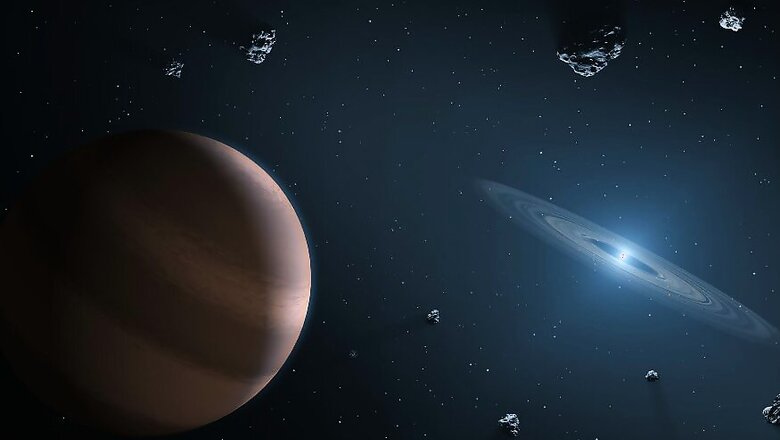
views
So far, the mission to find another Earth, or Earth-like planet that can support or may already support life, hasn’t really yielded results. But that doesn’t mean there aren’t life forms out there in our galaxy, particularly ones that are incredibly intelligent. Scientists now estimate that there may be at least 36 intelligent alien civilizations in our galaxy itself. The questions that may always remain unanswered though is where these alien civilizations live or may have lived, will we ever be able to interact with them and whether some of them existed sometime in the past. A group of scientists at the University of Nottingham introduced a new a new “cosmic evolution” based calculation to suggest that our galaxy hosts at least 36 intelligent life forms.
In a study published in the latest The Astrophysical Journal, the scientists say, “Our calculation involves Galactic star formation histories, metallicity distributions, and the likelihood of stars hosting Earth-like planets in their habitable zones, under specific assumptions which we describe as the Astrobiological Copernican Weak and Strong conditions. These assumptions are based on the one situation in which intelligent, communicative life is known to exist—on our own planet.”
The Milky Way, which is the Earth’s Solar System and where we exist, is estimated to have as many as 400 billion stars.
The scientists started with the Drake equation, which is a formula introduced by Frank Drake back 1962 in an attempt to estimate the intelligent life forms in our Galaxy. This equation relies on a variety of factors, including how often sun-like stars form in the galaxy, the number of stars that are orbited by planets which have life supporting habitable zones and how much time it takes for life to evolve, become intelligent and either be detected or be able to communicate with us. But to answer some of these questions, one would have to find and interact with another intelligent civilization first.
The study, with its revised calculations assumes that it would take roughly five billion years for intelligent life to form on other planets, based on the calculations that it is how long it takes on Earth. It is also calculated that a civilization’s technological evolution will last at least 100 years, much like us lot. Humans, it is calculated, too about 4.5 billion years to evolve on Earth before they became capable of communicating.
“The classic method for estimating the number of intelligent civilizations relies on making guesses of values relating to life, but opinions about such matters vary quite substantially,” said Tom Westby, Assistant Professor, Faculty of Engineering at the University of Nottingham, and lead author on the paper. “Our new study simplifies these assumptions using new data, giving us a solid estimate of the number of civilizations in our galaxy.”
The study does say that the current distance between us and these 36 intelligent civilizations is around 17,000 light-years, which makes communication and detection very improbable.

















Comments
0 comment